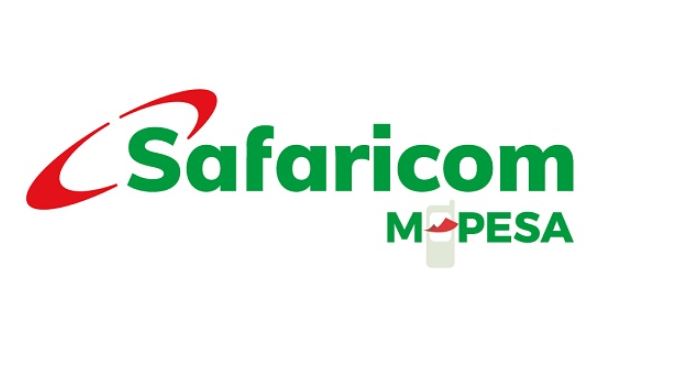According to Reports telecommunications company; Telkom Kenya is targeting regulatory directives via the Kenyan Parliament that will lead to Safaricom reducing the charges it placed on money transfers from its mobile money service; M-Pesa, to other mobile money platforms.

Safaricom which is currently Kenya’s biggest telecommunications company has more affordable transaction rates for money transfers for M-Pesa to M-Pesa transactions than the rates it charges for transfers from its mobile money service to other mobile money services. The decision by Safaricom has been viewed by rival operators, as uncompetitive behavior.
The recent proposal by Telkom Kenya will now join the ranks of the numerous other proposals which have been brought before the Senate Standing Committee on Information, Communication and Technology by other competitors who believe that Safaricom is now a dominant player that should be further regulated in order to prevent the crumbling of competitors.
As it stands charges for transactions from M-Pesa to users of other mobile money platforms who are referred to by Safaricom as Unregistered Users, can be more than four (4) times more expensive than the fees charges for M-Pesa to M-Pesa transactions.
In Telkom’s submission to the Senate Standing Committee on Information, Communication and Technology it pointed out that the use of different tariffs by Safaricom, has helped to further cement the dominance of its mobile money service; M-Pesa which now has a market share of more than 90 percent in the Mobile Money space. This has left other mobile money services by competitors, with little to no chance of meeting M-Pesa in that space.
According to Telkom Kenya via its submission, “Safaricom charges should be uniform for cross-platform money transfers, in line with the AM recommendation, on both USSD [SMS-based technology] and STK [SIM card-enabled] transfers.”
Telkom Kenya believes that the pricing strategy executed by Safaricom, has aiding in its ability to attract more users while also keeping them on its own mobile money service as they have very few reasons to use other mobile money platforms.

For example an M-Pesa mobile money user who wishes to send money to another user on the M-Pesa service, will only pay a fee of 12 Kenyan Shillings. This is 75.5 percent lower than the 49 Kenyan Shillings that will be the case if said user wishes to carry out a transaction of the exact same amount to someone who uses another mobile money service.
Transferring 10,000 Kenyan Shillings from M-Pesa to another mobile money service, will come with a cost of 205 Kenyan Shillings which is 2.3 times the fee for transferring the same amount to other M-Pesa users as that would cost 87 Kenyan Shillings.
In addition, while an M-Pesa user can send up to 150,000 Kenyan Shillings to another M-Pesa user in a single transaction the highest amount allowed to other mobile money services in a single transaction is 35,000 Kenyan Shillings.
Apart from aiming to put an end to what it sees as pricing that is discriminatory, Telkom is also looking to have extra measures put in place by the various regulators to ensure that the mobile money business for Safaricom, is reformed.
Telkom Kenya stated that, “The relevant regulators, Central Bank of Kenya (CBK), Communications Authority of Kenya (CA) and Competition Authority of Kenya (CAK) need to co-operate and co-ordinate the implementation and enforcement of agent interoperability.”
Read Also: Airtel and Telkom Make Gains On Safaricom In Mobile Data Market
It added that, “The CBK should set a firm deadline for full mobile money interoperability and impose financial incentives designed to ensure Safaricom co-operates in implementing agent interoperability by the specified deadline.”

Telkom Kenya believes that the Central Bank of Kenya (CBK) which is responsible for formulating monetary policy, should put in place agency interoperability along with interoperability for billers and merchants. It is also seeking for the breaking up of Safaricom into seperate units that provide telecommunications services and mobile money services.
According to Telkom Kenya, the dominance of Safaricom is so severe across mobile money, voice and other sectors that regulators will need to take action so as to prevent the exit of or downfall of its competitors.
It (Telkom Kenya) said, “Accordingly, application of competition law alone would not adequately address the market failure(s) concerned.”
Read Also: Telkom To Ramp Up Its 4G Network In Kenya
In Safaricom’s submission to the same Senate Standing Committee on Information, Communication and Technology it stated that it is not a dominant player using its market share power to the stifle its competitors.
It stated that there is indeed healthy competition in the industry adding that any telecommunications company can grow its market share through innovation and more investments.
The Chief Executive Officer (CEO) of Safaricom while speaking to the Senate Standing Committee on Information, Communication and Technology stated that, “Safaricom does not have any market power and therefore Safaricom cannot act independently of other players and consumers.”
He made it known that, “It is our position that there should be no adverse regulatory actions that would stifle the growth the industry. There is room for great investment in the industry and we look forward to seeing additional investment by other players into the market.”
The new submission is coming not long after Airtel Kenya informed the Senate Standing Committee on Information, Communication and Technology that regulators in Kenya are yet to declare that Safaricom is a dominant player even though it has a market share of over 50 percent which in other markets, would have led to the Dominant Player designation occurring.
The Communications Authority of Kenya (CA) and the Competition Authority of Kenya (CAK) have both stated that the market share for Safaricom has in fact reduced in recent years with competition within the sector, continuing to be healthy. Safaricom further buttressed said point to the Senate Standing Committee on Information and Technology.

Airtel Kenya stated that designating Safaricom as a dominant player will be the first step in addressing the alleged unfair operating conditions.
Airtel which is the second biggest telecommunications company in Kenya, blames the Communications Authority of Kenya (CA) for what it sees as the allocation of mobile spectrum in a way that benefits Safaricom and its inability to reduce the fees charged by mobile phone operators to other mobile phone operators for interconnecting calls.
It informed the Senate Standing Committee on Information, Communication and Technology that Safaricom holds more mobile spectrum than its competitors.
According to Airtel Kenya, “Despite investing heavily in the network to improve customer experience, we continue to grapple with lack of spectrum especially in 4G/LTE which, as advised by the CA, is unavailable, yet the dominant player holds excessive spectrum.”
Read Also: Flutterwave and Airtel Money Enter Into Partnership For East Africa
In the petition by Airtel to the Kenyan Parliament, it was revealed that it had been allocated 50 MHz of the spectrum as opposed to the 82.5 MHz allocated to Safaricom, and the 37.5 MHz allocated to Telkom Kenya.
While Safaricom’s submission to the Senate Standing Committee on Information and Technology did not deal with the mobile spectrum allocation claim it however, emphasized its significant investments into infrastructure, as well as it paying the largest corporate taxes in Kenya.
With Airtel on the one hand pointing out reasons why Safaricom should be declared a Dominant Player and calling for actions to be carried out, Telkom Kenya believes that the smaller telecommunications competitors are in such severe situations that the issue is way beyond competition laws and should instead be tackled by proactive regulations.
Telkom Kenya stated that, “Although applied on a limited basis, ex-ante regulation has a long-term impact on competitiveness of the sector by foreclosing exits, attracting new entrants and spurring investments by all.”
In its words, “Put simply, ex-ante regulation demands short-term sacrifices by firms in the market for the overall consumer and economic welfare.”
How informative was this article? Are there any other news topics, categories, or How To topics, that you would like us to write on? Feel free to reach out to Mpesa Pay in the comment section.


